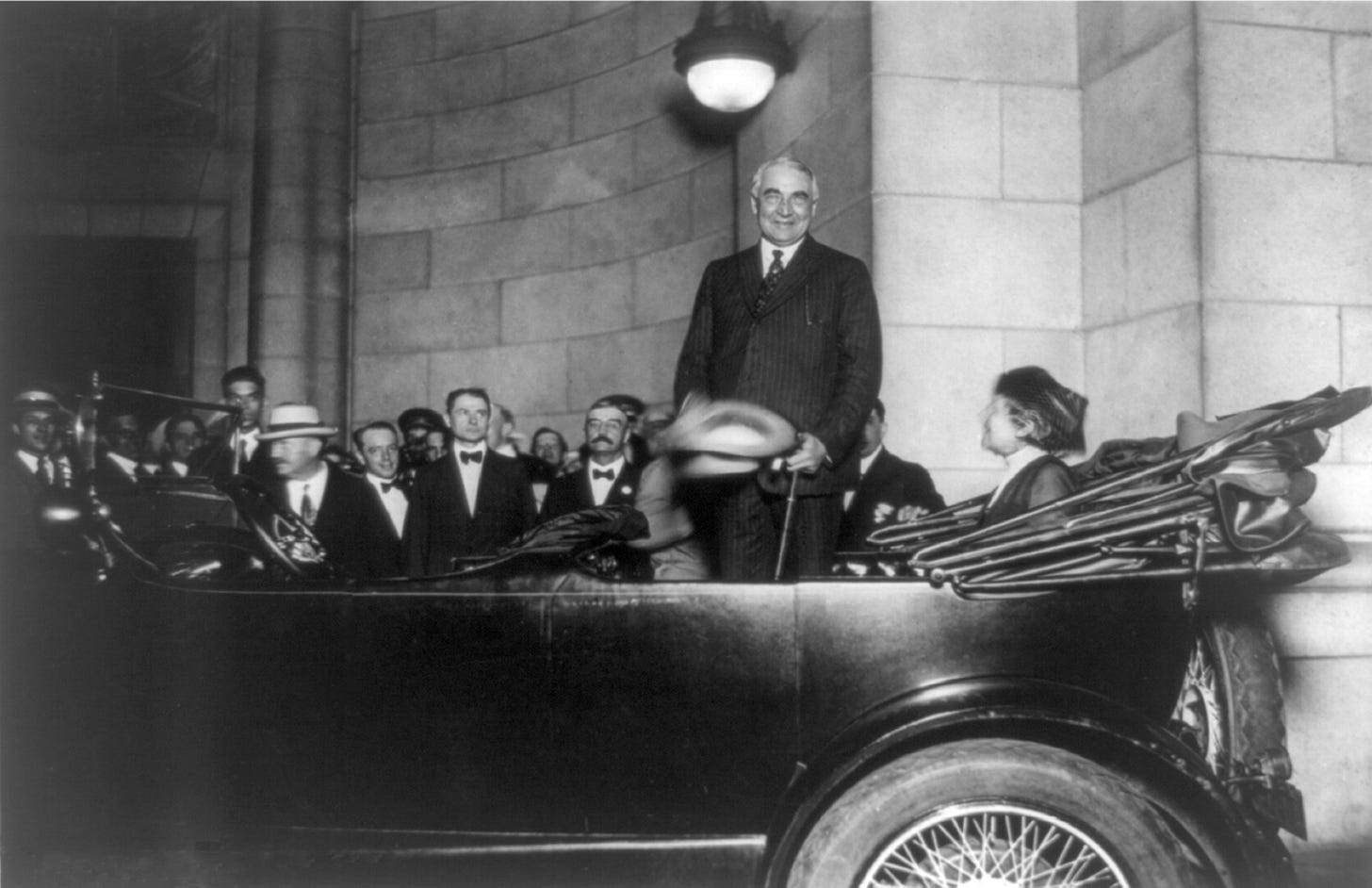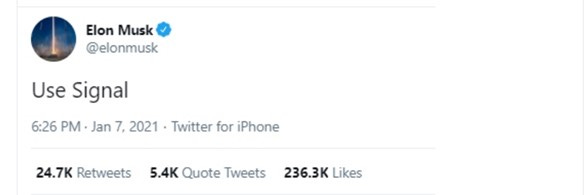The Halo Effect in the Age of Personal Branding
6 min read
“You know, it's funny... when you look at someone through rose-coloured glasses, all the red flags just look like flags.”
Wanda, Bojack Horseman
A Presidential Look
Warren G. Harding served as the 29th President of the United States. His short term in office lasted from 1921 – 1923.
He was tall, handsome and extremely charismatic – a good public speaker, known for his “stately” appearance.
As one of Harding’s chief promoters Harry Daugherty put it in 1920, “he looked like a President”.
Harding is also widely regarded as one of the worst presidents in the history of the United States.
Corruption, cronyism, and incompetence were rampant during Harding’s administration. He had no previous experience that suggested he would make a good president, and he even confessed to reporters on a number of occasions that he did not feel qualified to sit in the Oval Office.
So how did Harding manage to get elected as the President of the United States?
Malcolm Gladwell sheds light on this in his book Blink:
“Many people who looked at Warren Harding saw how extraordinarily handsome and distinguished he was, and jumped to the immediate and unwarranted conclusion that he was a man of courage, and intelligence and integrity. They didn’t dig below the surface.”
Most voters didn’t know very much about Warren Harding.
He took deliberately vague stances on many important issues. His ability to run a country was unproven to say the least.
But he looked the part and he spoke well.
For most people, this was enough. They liked him. And based on that, they were willing to assign to him the attributes of someone worthy of a presidential role.
The Halo Effect
The story of Warren Harding is an example of the Halo Effect in action.
Psychologist Daniel Kahneman (author of Thinking, Fast & Slow) describes the Halo Effect as the “tendency to like (or dislike) everything about a person – including things you have not observed”.
When we see someone (or something) as good initially, then we tend to assume that they have many other positive traits as well, even if we have no real evidence for this assumption.
The classic example of the Halo Effect is that good-looking people are often assumed to be intelligent and competent.
The Halo Effect pops up in every walk of life.
The Workplace
Assessments of colleagues or employees can be influenced by the Halo Effect.
Performance reviews might be skewed by our perception of who dresses sharply, or who appears confident, or who is enthusiastic and friendly.
All of these factors can lead us to believe that someone is more competent than they really are.
So if you’re a junior learning your trade, remember that a good attitude can go further than you might expect.
The Courtroom
Studies have shown that in general judges and jurors look more favourably on physically attractive suspects.
Judges have also been shown to be more lenient with good-looking people when it comes to sentencing. This often translates to smaller fines and less jail time for those convicted.
You can read more about this here.
Branding Power
Apple products are loved the world over. From the iPhone to the Apple Watch to the ludicrously successful Airpods, Apple is arguably the most powerful brand in the world.
This allows Apple to expand into new industries. We see the Halo Effect in the reaction of Apple’s loyal fanbase to new ideas.
They like existing products, so they’re open to buying new Apple products which are largely untested or even have poor reviews.
The Halo Effect & Personal Branding
Before exploring ways to combat the Halo Effect, there’s another impact of the bias that needs to be mentioned.
It’s less talked about but just as important as the cases above.
It’s the impact that the Halo Effect has on our ability to collect balanced information and think independently.
This is especially true as we enter a golden age of personal branding.
New technology is changing the way we consume content.
Content creators – writers/podcasters/commentators – are bypassing traditional platforms and finding new ways to directly connect with their audience and strengthen their personal brand.
Newsletter subscriptions mean content is delivered directly to our inboxes, and the act of listening to a podcast can feel quite intimate.
We feel like we know our favourite podcasters on a personal level. We add them to our list of friends.
The problem with this is that the Halo Effect is still in operation. It’s just harder to notice.
Let’s consider a modern example of the Halo Effect combined with the power of personal branding.
A.K.A. a billionaire and his Twitter account.
Separating the Signal from the Noise
It’s no secret that Elon Musk has garnered a huge following of enthusiastic fans in the last few years.
Such is the intensity of this following that many have likened Tesla to a cult, with Musk as its spiritual leader, the self-proclaimed “Technoking of Tesla” and “Emperor of Mars”.
On January 7th of this year, the Emperor tweeted two words:
“Use Signal”.
These two words referred to the Signal App, a messaging service in direct competition with WhatsApp.
But here’s the fun part.
One day before Musk’s tweet, Signal Advance (a publicly traded company with its HQ in Texas) saw its share price close at $0.60.
5 days after Musk’s tweet, the share price peaked at a high of $70.85, before crashing back down to earth.
The peak of $70.85 represented an increase of over 11,500% in value.
Or put another way, in the eyes of the market the company was briefly worth over 110 times what it had been worth just a few days earlier.
It’s scary the effect that one tweet can have on a free market.
The scariest thing about this story though?
Signal Advance is a medical device company. It has absolutely nothing to do with the Signal App. Let me say that again for emphasis. Signal Advance is completely unrelated to the Signal messaging app.
So What Happened?
Musk’s followers, when told to jump, didn’t even take the time to stop and ask how high. They just piled into a completely unconnected company at an alarming rate.
There was no independent thinking. No due diligence.
At first glance I thought this behaviour was wild.
But the more I thought about it the more I could see how it might happen.
As was the case with Warren Harding, the Halo Effect was at work. Musk’s followers immediately assigned value to the words “Use Signal” based on their existing opinion of Musk.
I’ve been guilty of similar logic at times, becoming overexcited about an investment idea based on who was promoting it, rather than its merits.
Or reading different books that are all recommended by the same commentator.
The greater our respect and admiration for someone and the stronger their personal brand, the more vigilant we need to be to make sure the Halo Effect isn’t at play.
After all, much like our bodies are shaped by the food we eat, our thoughts and opinions are shaped by the content we consume.
What’s the Fix?
Lucky for us, there are ways to combat the Halo Effect.
1. Slow down and gather more information.
Slow down your thought process. Buy yourself some time.
When confronted with a problem requiring an evaluation of someone (or something), think about what you know, and more importantly, what you don’t know about them. Don’t let an initial impression fill in the missing gaps to their personality.
Spend some time gathering more info.
In the workplace, or in a HR setting, a written criteria of personality traits to work through can be useful when assessing employees or job candidates.
2. An Audit & An Alternate Universe.
Review your news sources every now and then. Make sure you can define their circle of competence.
Review what data points you actually have about a person, brand, or news source.
How many times did they comment on things which were outside their area of expertise?
Did their information/product prove to be reliable?
Imagine an alternate universe where you receive the exact same information from someone you don’t know. Would you still give it as much credence?
The Bottom Line
To keep the Halo Effect at bay, it helps to remind yourself of the expertise of the people you come across.
In the same way that you might question a salad from McDonald’s, or an inhaler from the makers of Marlboro cigarettes (yep, this is a real thing), you should probably take Tweeted advice from Elon Musk with a pinch of salt.
No matter whose insights we like or which commentators we trust, it’s never a complete replacement for our own due diligence and understanding.
It’s worth bearing in mind that not everything your favourite podcaster says will be accurate, and not everything they recommend will be of a high quality.
Nobody’s right all of the time.
P.S. in case you were wondering, at the time of writing Signal Advance’s share price is hovering at around $0.90.
P.P.S the Halo Effect has an evil twin – The Devil Effect. Stay tuned for an upcoming post on this.
Not finished your coffee yet?
Here are some interesting links to keep you going:
Article: Investor confusion about similar companies is more common on Wall Street than you might think, reportedly costing somewhere in the region of $1.1 million per year in transaction costs.
Tweet: A day after Musk’s Tweet on the 7th of January, Signal App puts out a Tweet of their own trying to let people know that there’s been a mix up and they are a non-profit…
Video: The life of Warren Harding summed up here in less than 5 minutes.
Podcast: Choice Hacking Episode 105: The Halo Effect - 10 min listen.








